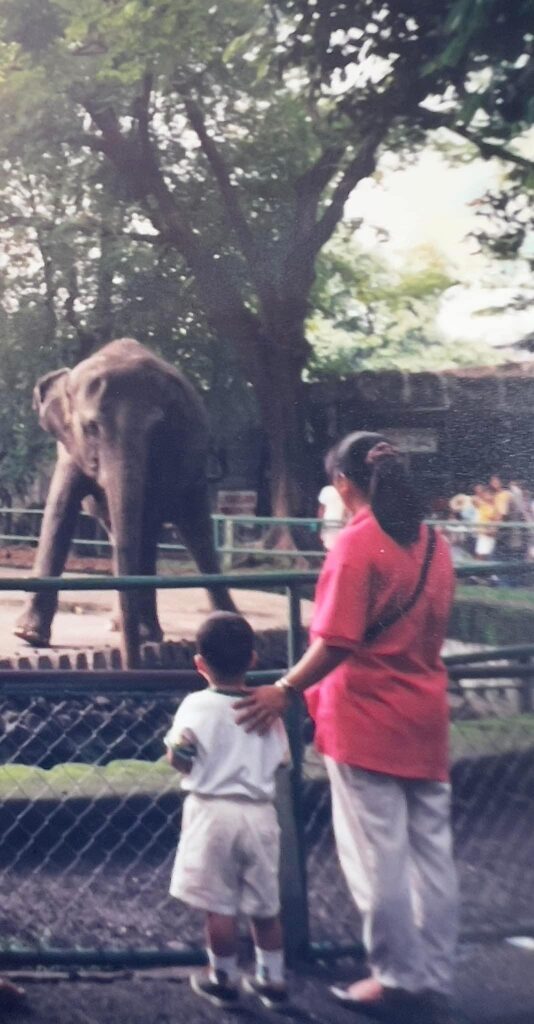
Earth Island Institute Asia-Pacific
Quezon City, Philippines – November 30, 2023 – With heavy hearts, the Earth Island Institute Philippines (EIIPH) mourns the loss of Mali (Vishwamali), the beloved Asian elephant who graced the Manila Zoo for over four decades. The gentle giant passed away on November 28, 2023, at an estimated age of 43.
Vishwamali (Mali) was a captive elephant. She was taken from her family in Sri Lanka at the age of three and brought to the Manila Zoo in 1977 as a gift to then-First Lady Imelda Marcos. Her life was confined within the boundaries of a small, barren enclosure, a stark contrast to the vast landscapes and rich social connections that define an elephant’s natural existence.
EIIPH, a staunch advocate for animal welfare, firmly believes that wild animals, like Mali, belong in their natural habitats, not as captive spectacles for human amusement. Elephants, the epitome of social cohesion, forge deep bonds within their families and herds. They traverse vast territories in search of sustenance and companionship, their complex communication relying on a symphony of vocalizations and body language. Confining these majestic creatures to sterile enclosures is a cruel deprivation of their innate behaviors and the fulfillment they deserve.

Asian elephants are classified as endangered in the IUCN Red List of Threatened Species and play a vital role in the ecosystem. They keep ecological balance through eating some species of plants and spreading the seeds of some.They also create trails through grazing and trampling that act as forest fire control lines. Mali could have done a better service to the ecosystem in the wild than in the zoo for so-called “educational purposes”.
The wildlife trade, fueled by the demand for exotic animals, continues to threaten the existence of elephants in the wild. Zoos, despite their claims of conservation, contribute to this exploitation by acquiring animals through various means, including direct capture, captive breeding, and inter-zoo exchanges.
EIIPH, with a deep sense of compassion, calls upon the Manila Zoo to cease its operations and release its remaining animals to sanctuaries where they can experience true freedom and dignity. We also implore the public to refrain from patronizing zoos and instead support organizations dedicated to protecting wildlife in their natural sanctuaries.
“We are in grief when we heard of the untimely death of “Mali”. Her life and all other animals in captivity just like dolphins are analogous – they lead sad, wasted lives for shallow human entertainment.” said Ms. Trixie Concepcion, Regional Director of Earth Island Institute Asia-Pacific
Mali’s passing serves as a poignant reminder of the detrimental impact of captive wildlife exhibits. Her story should resonate with the public, urging them to embrace a more humane and compassionate approach to wild animals. Let us honor Mali’s memory by advocating for a world where wild animals are cherished and protected in their rightful domains.






